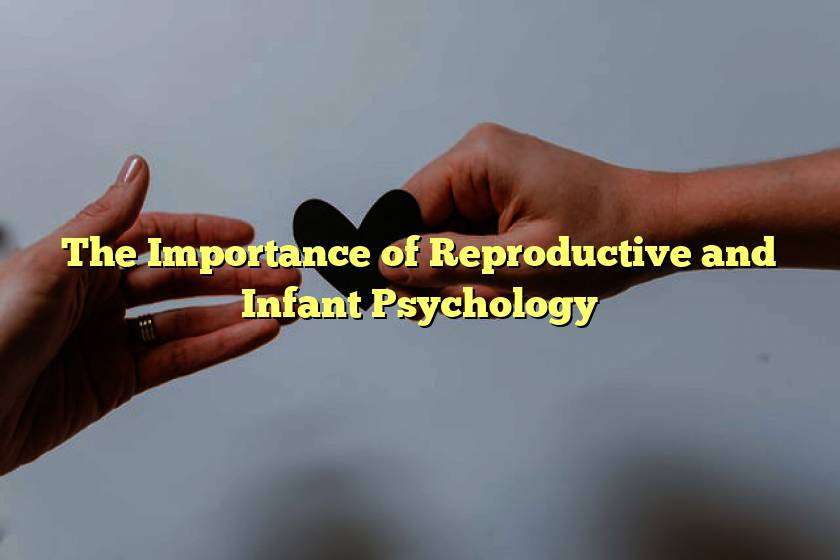If you are a new parent or are trying to conceive, you are likely familiar with the term "reproductive and infant psychology." This field of psychology focuses on the emotional and mental health of mothers, fathers, and babies during pregnancy, birth, and the postpartum period. It is critical to understand the importance of reproductive and infant psychology, as it can have a significant impact on the well-being of the entire family.
Understanding Reproductive and Infant Psychology
Reproductive and infant psychology is a thriving field that examines the way that parents and babies form emotional bonds and how these bonds contribute to their mental and emotional health. This field of psychology looks at the unique challenges that come with pregnancy, birth, and the postpartum period and how they can impact the mental health of new parents.
The Impact of Reproductive and Infant Psychology on the Whole Family
The benefits of understanding reproductive and infant psychology are far-reaching and can have a positive impact on the entire family. For example, studies have shown that mothers who receive emotional support during pregnancy and birth are less likely to experience postpartum depression. Additionally, babies who receive nurturing care from their parents during the critical first few months of life are more likely to grow up to be healthy, happy adults.
Coping with the Challenges of Parenthood
One of the most significant benefits of reproductive and infant psychology is that it helps parents cope with the many challenges that come with raising a child. Parents who have a solid understanding of this field of psychology are better equipped to handle the demands of caring for a newborn. They are more likely to seek help when they need it and are better able to manage anxiety, depression, and other mental health issues that can arise during the postpartum period.
Conclusion: A Valuable Resource for Parents
Overall, reproductive and infant psychology is a crucial resource for parents at all stages of the family-building process. Whether you are trying to conceive, are pregnant, or have already given birth, this field of psychology can help you navigate the many emotional and mental challenges that come with building a family. So if you are a parent or are planning to become one, take the time to learn more about reproductive and infant psychology. Your family will thank you for it.



